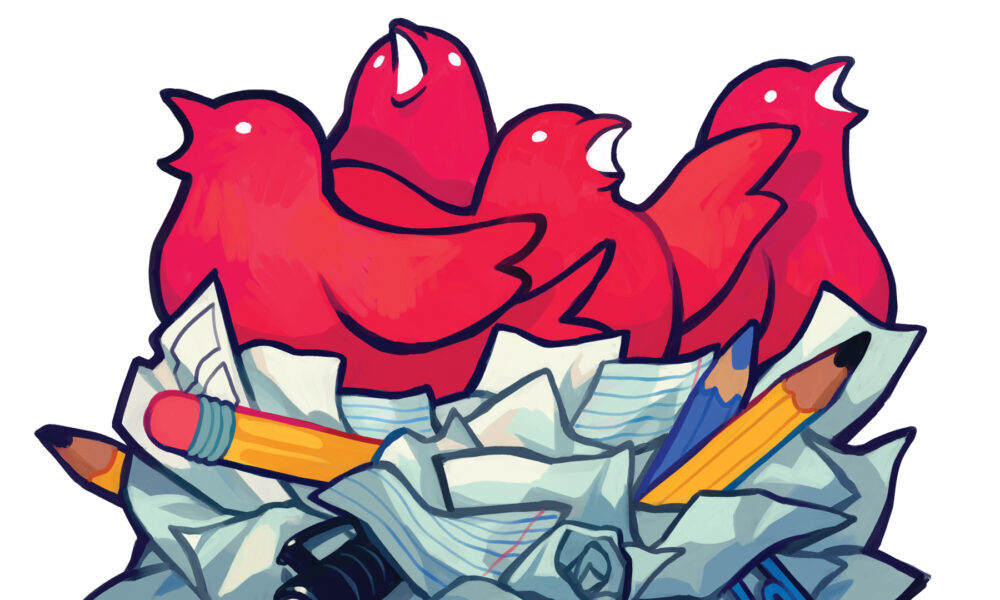Tax season is in full swing and the May 1 deadline to file is fast approaching. Typically, the deadline is April 30, though this year it falls on a Sunday, giving taxpayers an extra day. In an attempt to make the process less stressful, //The McGill Tribune// compiled answers to frequently asked questions and a list of resources offered by McGill.
How do I file my taxes?
While filing taxes varies from case to case, there are some general rules to follow. Anyone with an income must file taxes. Before starting, anyone filing a tax return needs to have certain forms on hand, such as a T4 from their employer or T2202 from their educational institution, their Social Insurance Number (SIN), and other personal details, like an address.
For students working in Canada, filing taxes is not only a legal obligation but also an opportunity to get tax refunds, which come from the money that is deducted from paychecks when initially issued. Employers are meant to issue both federal T4 forms and the Quebec provincial equivalent, Relevé 1 forms, to their employees. Workers should receive these forms in February from every one of their employers over the past tax year.
Another common tax form for students is the T4A slip. These are issued to students who received scholarships or bursaries. T4A slips, Medical Insurance Receipts, Relevé 8 forms, and T2202 slips are all tax documents that can be accessed by students through Minerva under the Student Accounts tab.
Once all the forms are in order, it’s time to file. Taxes can be filed either online or on paper, but the Canada Revenue Agency (CRA) recommends filing online, which requires a CRA-certified tax software like TurboTax or H&R Block. Residents of Quebec have to file both federal taxes to the CRA and provincial taxes to Revenu Québec.
If doing your own taxes is too overwhelming, you have other options. Students can authorize a parent or representative to do their taxes for them. In addition, many students may be eligible to get their taxes done at free tax clinics. These clinics are organized by the Income Tax Assistance Volunteer Program and can be walk-in, drop-off, or by appointment.
What kinds of deductions or credits can I get as a student?
Taxes are notoriously complicated and it can be difficult for people with low incomes, such as students, to maximize their tax returns and save money. When filing taxes, students can consult Revenu Québec’s website to find student-specific information regarding tax credits and deductions.
Depending on a student’s individual situation, they may be eligible for credits such as the federal Goods and Services Tax Refund or the Quebec Solidarity Tax Credit—both are issued quarterly to those who qualify. Deductions can be claimed for certain student-related costs such as moving expenses, tuition costs, or interest paid on student loans.
Students with no income or people making money that is non-taxable are not required but are encouraged to file a tax return because of potential income tax refunds. In some cases, as with the GST credit, students can have no income but still get money back from the government.
What should I know if I am an international student?
Taxes in Canada are dependent on residency, not citizenship. As such, international students who work must file taxes in Canada. Just like Canadian students, international students can benefit from filing taxes even if they have no income. One benefit is a tuition credit which can be carried forward, reducing the amount of taxes that one owes in future years. Tuition credits can also be used by Canadian students.
International students should also keep in mind that they have to declare any international income, that is, any income that may have been made in their home countries.
What resources are there for students?
Scholarships and Student Aid, a subsection of McGill Student Services, provides workshops on how to do taxes for both Canadian and international students. For international students, International Student Services (ISS) has lists of resources that can be consulted.
Aside from McGill resources, the CRA has a step-by-step guide, including videos, which explains the details of filing taxes.
Financial savviness underlies much of the taxing tax reporting process. While people in higher income brackets have more access to help such as personal accountants or financial assistants, students often have to figure it out for themselves. To help, the Scholarships and Student Aid Office also offers workshops on budgeting and general financial literacy.










